Well, for us, in history where goodness is a rare pearl, he who was good almost takes precedence over he who was great
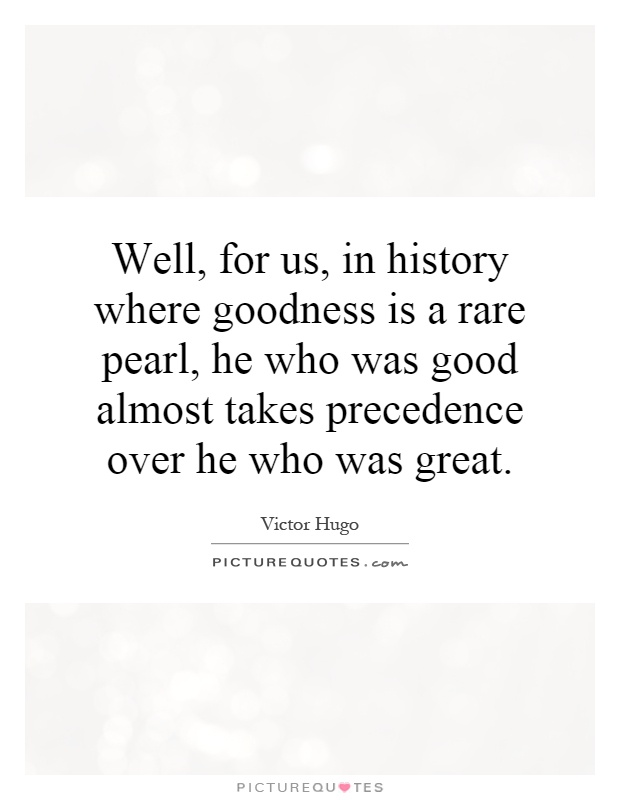
Well, for us, in history where goodness is a rare pearl, he who was good almost takes precedence over he who was great
Victor Hugo, the renowned French writer, poet, and playwright, is often remembered not only for his literary genius but also for his deep sense of compassion and empathy for the marginalized and oppressed. Throughout his works, Hugo championed the cause of social justice and human rights, using his platform to shed light on the plight of the poor and downtrodden.In the quote, "Well, for us, in history where goodness is a rare pearl, he who was good almost takes precedence over he who was great," Hugo emphasizes the importance of goodness and moral integrity in a world where power and greatness often overshadow the value of kindness and compassion. He believed that true greatness lies not in wealth, fame, or status, but in the ability to show empathy and kindness towards others.
Hugo's own life and works exemplify this belief. He was known for his philanthropy and charitable efforts, using his wealth and influence to support various social causes and help those in need. In his novel "Les Misérables," Hugo portrays the character of Jean Valjean, a former convict who finds redemption through acts of kindness and selflessness. Valjean's transformation from a hardened criminal to a compassionate and generous man serves as a powerful example of the transformative power of goodness.
Hugo's emphasis on goodness and compassion also reflects his belief in the inherent dignity and worth of every individual. He believed that all people, regardless of their social status or background, deserve to be treated with respect and compassion. This belief is evident in his advocacy for the rights of the poor, the oppressed, and the marginalized, as well as his condemnation of injustice and inequality.


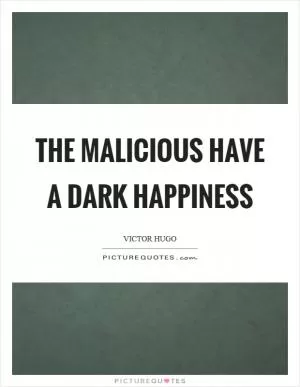


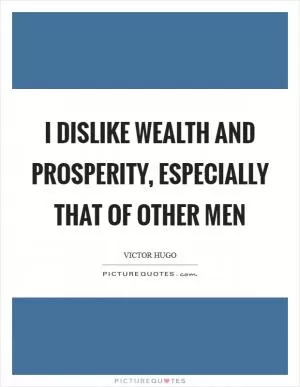

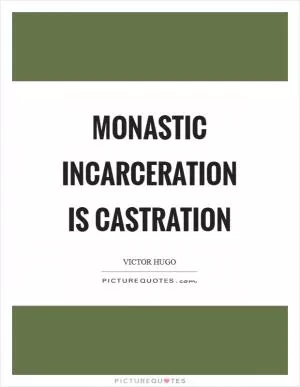
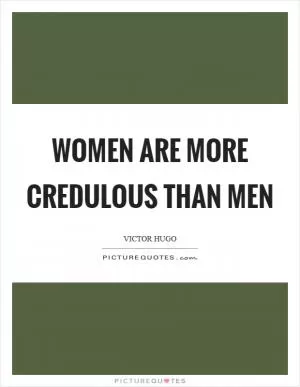


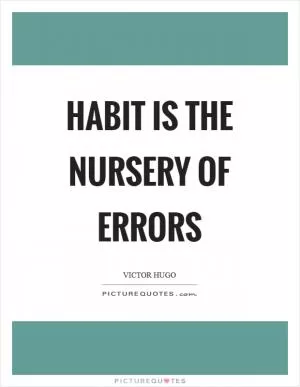
 Friendship Quotes
Friendship Quotes Love Quotes
Love Quotes Life Quotes
Life Quotes Funny Quotes
Funny Quotes Motivational Quotes
Motivational Quotes Inspirational Quotes
Inspirational Quotes